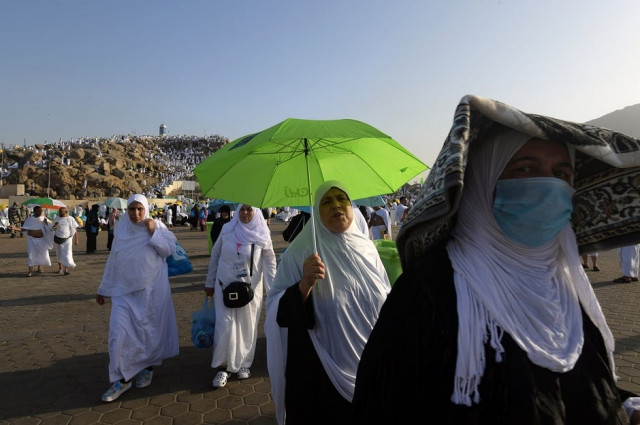Saudi Arabia plans more service to improve 'Smart Hajj' initiative
To promote the concept of using smart solutions to provide high-quality services for the pilgrims

Muslim pilgrims make their way to Mount Arafat, also known as Jabal al-Rahma (Mount of Mercy).
PHOTO: AFP
Dr Abdulfattah Mashat, deputy minister of Hajj and Umrah said that the Ministry of Hajj and Umrah (MHU) is undergoing a digital transformation in cooperation with leading technology companies to promote the concept of using smart solutions to provide high-quality services for the pilgrims.
Vision 2030 reform plan: Saudi Arabia scraps repeat Umrah fees
"It will contribute to improving and enriching pilgrims' experience in the Kingdom as well as achieve one of the main goals of Saudi Vision 2030," Dr Mashat said.
"The MHU, has made many strategic partnerships with the private sector to improve the quality of services and the development of 'Smart Hajj' solutions, including the signing of MoUs last year with SAP in the field of technology, digital infrastructure, cloud computing, geospatial cloud computing platforms, and smart cards to improve services," he added.
The "Smart Hajj" initiative documents pilgrims using Internet, geospatial and camera analytics, along with data from the pilgrim experience mobile feedback platform in real-time.
"Our Smart Hajj ensures that millions of pilgrims from around the world are transported quickly, easily and safely to religious sites on set schedules," stated Dr Amr Al-Maddah, chief planning and strategy officer at the MHU, according to Arab News.
Post-Hajj flights concluded
The MHU is also one of the participants of GITEX 2019, an annual technological event in Dubai and is showcasing its latest technologies in serving Hajj and Umrah pilgrims.
Pakistani nationals usually constitute the third largest group - after Saudis and Indonesians - for the pilgrimage every year, with 200,000 travelling to the Kingdom this year.
In a bid to facilitate pilgrims from Pakistan, authorities at the two holy mosques in Saudi Arabia added six new regional languages, including Urdu, for better communication. In addition to Urdu, all lectures, speeches, and instructions will now be available in Pashto, Punjabi, and Balochi as well.



















COMMENTS
Comments are moderated and generally will be posted if they are on-topic and not abusive.
For more information, please see our Comments FAQ